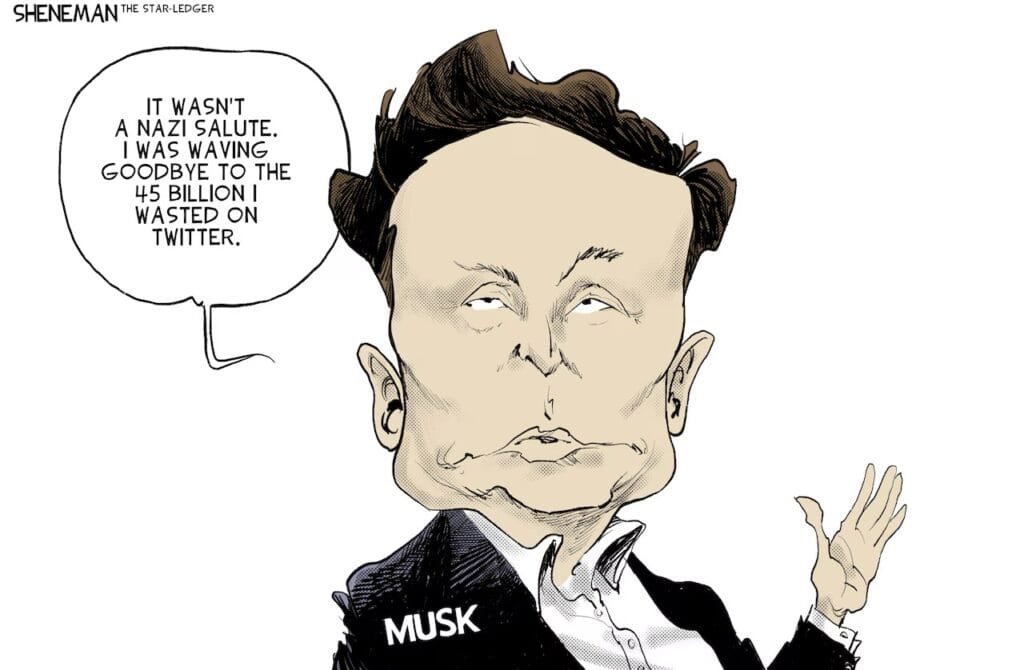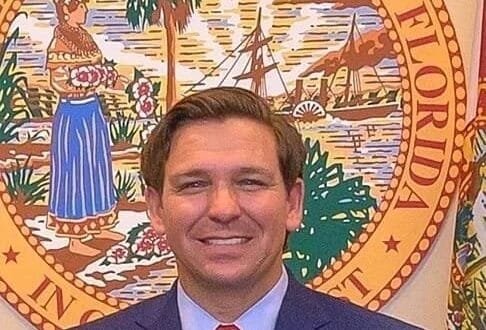Examining Elon Musk: Controversial Statements and Actions

The Inauguration Incident: Noteworthy Salutes
During a recent inauguration event, the tech entrepreneur Elon Musk found himself at the center of controversy for allegedly performing two Nazi salutes. This incident occurred when Musk was captured on camera in a manner that many interpreted as reminiscent of the infamous gestures associated with Adolf Hitler and the Nazi regime. Given Musk’s significant public profile as the CEO of SpaceX and Tesla, the implications of his actions prompted immediate scrutiny from media outlets and public figures alike, sparking debate over historical awareness and sensitivity.
The context of the incident is crucial for understanding the reactions it elicited. In an era marked by heightened vigilance regarding hate speech and symbolic gestures that can be perceived as endorsing extremist ideologies, Musk’s alleged actions were met with widespread condemnation. Various commentators, including political analysts and social media influencers, expressed alarm over the lighthearted manner in which some interpreted the incident. This raises important questions about accountability for prominent figures and the significance of their public gestures, particularly in an environment deeply concerned with the implications of historical memory.
Reactions varied widely, with some defending Musk, arguing that the gestures were misinterpreted or taken out of context. Others, however, underscored the necessity for high-profile individuals to remain cognizant of the symbolic weight their actions carry, especially given the political climate surrounding issues of racism, anti-Semitism, and intolerance. Furthermore, critics argue that such behavior detracts from serious conversations about historical awareness and its impact on contemporary society.
As discussions unfold, it becomes evident that gestures, even when seemingly innocuous, can have profound consequences in today’s landscape. The incident has ignited a broader dialogue about the responsibilities of public figures and the need for a more nuanced understanding of history in shaping public discourse.
Disturbing Denials: Musk’s Remarks on Historical Figures
Elon Musk, a prominent figure in technology and business, has made several controversial remarks regarding well-documented historical figures such as Adolf Hitler, Joseph Stalin, and Mao Zedong. His assertions that these individuals were not mass murderers have sparked significant debate and concern among historians, political analysts, and the public. Such statements can be viewed as a form of historical revisionism, often leading to implications that are both troubling and potentially harmful.
The assertion that these historical figures did not engage in mass murder contradicts extensive research and documentation evidence. Hitler’s genocidal actions during the Holocaust, the Great Purge under Stalin, and Mao’s Great Leap Forward, which resulted in the deaths of millions, are well-documented phenomena. By denying these realities, Musk not only undermines the rich historical records but also risks invalidating the experiences of countless victims and survivors of these regimes.
This approach to historical figures carries the potential to influence public perception significantly, particularly among younger generations who may rely on voices like Musk’s for information. Trivializing past atrocities can lead to a dangerous normalization of denial and can obscure the lessons that history offers about the consequences of totalitarianism, propaganda, and dehumanization.
Responses from historians and political analysts have emphasized the risks involved in such trivialization. Experts argue that when prominent individuals disseminate incorrect historical narratives, it can lead to a skewed understanding of events that shaped the modern world. This distortion not only complicates discussions about accountability and justice for historical injustices but may also embolden contemporary movements that seek to reinterpret history for ideological ends.
In addressing these complex issues, it is essential to approach history with an informed and analytical mindset, dedicating efforts to preserve the truth while fostering discussion based on factual accuracy.
Endorsement of Neo-Nazi Parties: A Line Crossed
In recent months, Elon Musk’s endorsement of the neo-Nazi Alternative for Germany (AFD) party during the German elections sparked widespread outrage and concern. His remarks not only raised eyebrows in Germany, but also reverberated across the globe, eliciting strong reactions from political rivals, advocacy groups, and the general public. Such endorsements pose significant implications for democratic societies by threatening the very principles upon which these systems are built: inclusivity, tolerance, and mutual respect.
The Alternative for Germany party, known for its far-right policies and xenophobic rhetoric, has been accused of attracting extremism. Musk’s support for this organization brings to light the influence public figures can wield over political landscapes. The ramifications are manifold; endorsements of this nature can embolden fringe groups, potentially destabilizing the political climate and polarizing the electorate. In democratic systems, where public opinion shapes governance, the repercussions of such support can ripple through to broader societal unrest and normalized radical perspectives.
Responses from political opponents were swift and fierce. Many advocates for human rights and social justice vocally condemned Musk’s stance, urging for accountability from influential figures who hold the power to sway public opinion. Advocacy groups emphasized the need to challenge extremist narratives rather than allow them to fester in the public discourse. The juxtaposition between Musk’s status as a pioneering entrepreneur and his political endorsements prompts critical reflection on how public figures can leverage their platforms responsibly.
Ultimately, the endorsement of neo-Nazi parties like the AFD demonstrates a concerning trend where controversial figures may inadvertently support regressive ideologies. This not only raises alarms among constituents advocating for human rights but also underscores the broader implications for maintaining a functioning democracy amid rising populism and extremism.
A Warning from Germany: Recognizing Patterns of Extremism
In recent discussions regarding the political landscape in the United States, voices from Germany have emerged, cautioning against the manipulative tactics employed by certain influential figures, notably Donald Trump and Elon Musk. These concerns are rooted in Germany’s historical experiences with extremism, particularly the rise of the Nazi regime, which serves as a poignant reminder of how charismatic leaders can exploit societal vulnerabilities to gain power and sideline democratic values.
Historically, the emergence of extremist movements often follows a recognizable pattern, characterized by the use of persuasive rhetoric, the creation of a common enemy, and the manipulation of public sentiment. Germany’s past ultimately illustrates how individuals can be swayed by the appeal of strong, yet dangerously simplistic narratives, leading to a diminishment of critical thinking. With Musk and Trump, their statements and actions often evoke similar emotional reactions, fostering division and polarization among followers.
Moreover, the warning from Germany emphasizes the need for vigilance amidst political discourse. The echoes of past atrocities should not be ignored; they serve as a lens through which current events can be analyzed. Germans urge Americans to be cognizant of not just the content of political messaging but also the broader implications that come with it. Engaging in critical reflection and open dialogue is essential in combating the allure of authoritarianism, which can arise when civil discourse is replaced with demagoguery.
In considering the remarks from German commentators, the takeaway is clear: there is a necessity for continuous awareness and the cultivation of a discerning public that can identify and confront extremist tendencies. Through education and community involvement, citizens can build resilience against such manipulative tactics, ensuring that history does not repeat itself.




